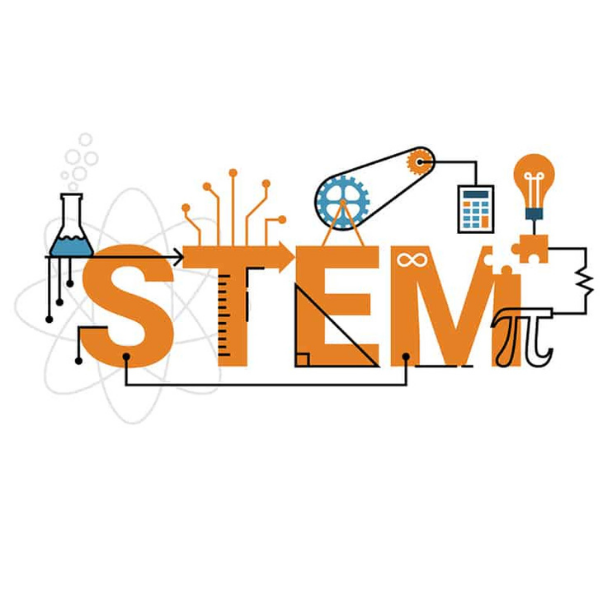WR Immigration Attorneys Charina Garcia, Melissa Harms, and Nate Grow addressed these changes in detail in a webinar, which is available on demand now!
The Biden administration announced new actions to increase opportunities in the United States for science, technology, engineering, and mathematics (STEM) students and professionals, among others. A White House statement said the new actions are intended to “advance predictability and clarity for pathways for international STEM scholars, students, researchers, and experts to contribute to innovation and job creation efforts across America. These actions will allow international STEM talent to continue to make meaningful contributions to America’s scholarly, research and development, and innovation communities.”
According to the Department of State (DOS), in 2020, international students contributed more than $39 billion to the U.S. economy and supported an estimated 410,000 jobs in cities and towns across the United States. “U.S. entities and businesses gain a competitive edge in our global economy with the perspectives and skillsets of international students and scholars, particularly in the STEM fields,” DOS said.
Below are highlights of the new actions announced by the Departments of Homeland Security (DHS) and DOS:
DHS Initiatives
- DHS added 22 new fields of study to the STEM optional practical training (OPT) program to “enhance the contributions of nonimmigrant students studying” in STEM fields and to “support the growth of the U.S. economy and innovation.” The STEM OPT program permits F-1 students earning bachelor’s, master’s, or doctoral degrees in certain STEM fields to remain in the United States for up to 36 months after they graduate to work in their fields of study.
- DHS is also updating its guidance to clarify how certain STEM graduates can use the national interest waiver for employment-based immigrant visa classification as an advanced degree professional noncitizen or noncitizen of exceptional ability. DHS noted that certain noncitizens with an advanced degree or exceptional ability “can self-petition for employment-based immigrant visa classification, without testing the labor market and obtaining certification from the Department of Labor, if USCIS [U.S. Citizenship and Immigration Services] determines the waiver of the labor market test to be in the national interest.”
- USCIS is also updating its guidance related toO-1A nonimmigrant status for noncitizens of extraordinary ability in the fields of science, arts, education, business, or athletics. The update explains how USCIS determines eligibility for O-1A petitioners and, for the first time, provides examples of evidence that might satisfy the criteria, including for individuals working in STEM fields, DHS said.
DOS Initiatives
- The Early Career STEM Research Initiative seeks to connect BridgeUSA exchange sponsors with interested U.S.-based STEM host organizations (e.g., small and medium businesses) to increase the number of STEM-focused educational and cultural exchanges.
- DOS is also announcing an extension for undergraduate and graduate students in STEM fields on the J-1visa that will facilitate additional academic training for periods of up to 36 months. The extension applies to the 2021-22 and 2022-23 academic years.
- DOS said these initiatives are “consistent with the recent Joint Statement of Principles in Support of International Education,” issued by DOS and the Department of Education.
Details:
- “Fact Sheet: Biden-Harris Administration Actions to Attract STEM Talent and Strengthen Our Economy and Competitiveness,” White House, Jan. 21, 2022, https://www.whitehouse.gov/briefing-room/statements-releases/2022/01/21/fact-sheet-biden-harris-administration-actions-to-attract-stem-talent-and-strengthen-our-economy-and-competitiveness/
- “DHS Expands Opportunities in U.S. for STEM Professionals” (includes a list of the 22 new fields added to STEM OPT), Jan. 21, 2022, https://www.dhs.gov/news/2022/01/21/dhs-expands-opportunities-us-stem-professionals
- “Update to the Department of Homeland Security STEM Designated Degree Program List,” 87 Fed. Reg. 3317 (Jan. 21, 2022), https://www.govinfo.gov/content/pkg/FR-2022-01-21/pdf/2022-01188.pdf
- “USCIS Provides Clarifying Guidance for O-1 Petitions With a Focus on STEM Fields,” USCIS, Jan. 21, 2022, https://www.uscis.gov/newsroom/alerts/uscis-provides-clarifying-guidance-for-o-1-petitions-with-a-focus-on-stem-fields
- “USCIS Updates Guidance on National Interest Waivers,” USCIS, Jan. 21, 2022, https://www.uscis.gov/newsroom/alerts/uscis-updates-guidance-on-national-interest-waivers
- “New Initiatives Further Opportunity for International STEM Students, Scholars and Researchers, U.S. Entities,” Jan. 21, 2022, https://www.state.gov/new-initiatives-further-opportunity-for-international-stem-students-scholars-and-researchers-u-s-entities/
- Early Career STEM Research Initiative, https://j1visa.state.gov/programs/early-career-stem-research-initiative/
- BridgeUSA, https://j1visa.state.gov/
- “Opportunity for Academic Training Extensions for J-1 College and University Students in STEM Fields,” BridgeUSA, Dept. of State, https://j1visa.state.gov/opportunity-for-academic-training-extensions-for-j-1-college-and-university-students-in-stem-fields/


